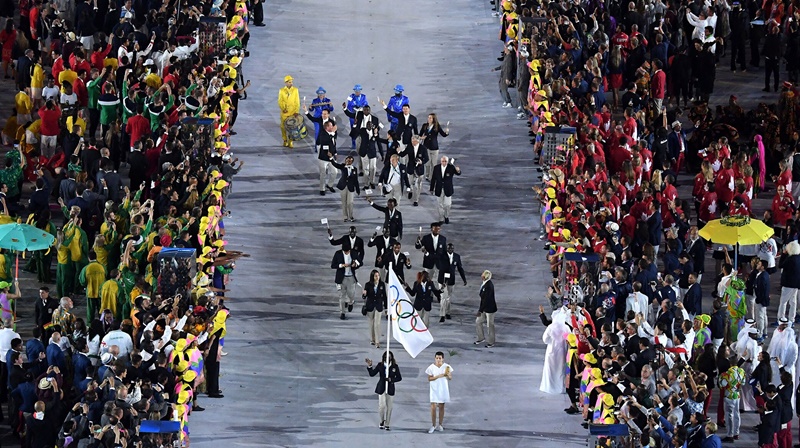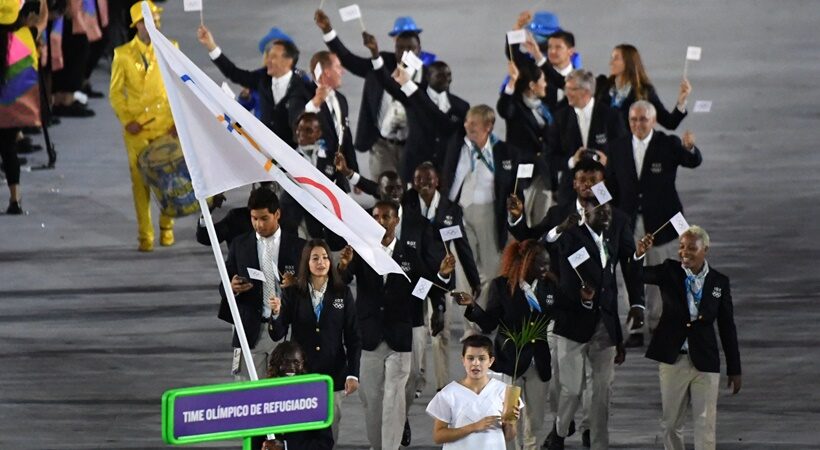If you are under the assumption that winning international sporting honours, especially the Olympics, changes a sportsperson’s destiny forever, then you should brace yourself for a high-voltage shock. Try asking Iranian Taekwondo athlete Kimia Alizadeh, who won the Bronze at Rio 2016 Olympics and triumphed at several global competitions, about the same. The response of the talented Iranian sportsperson of Azerbaijani descent would be a big no. Even after scaling several new heights internationally nothing much deviated in the script of her daily life. She had to finally threw in her towel after getting suffocated by years of oppression and sexist attitudes and moved to Germany along with her spouse. Recently, she competed under the Refugee team in the Tokyo Olympics and finished fourth in the games’ Taekwondo category despite putting her best foot forward.
Read More: Why This Olympics Is Special In Several Ways?
Apart from Alizadeh, there are 29 athletes taking part under the banner Refugee Olympic Team. These participants are originally from 11 different nations– Afghanistan, Cameroon, Democratic Republic of Congo, Eritrea, Iran, Iraq, South Sudan, Sudan, Syria, the Republic of Congo and Venezuela. However, they have been for the last four years or so nurturing their skill sets and practicing hard in 13 host countries — Austria, Belgium, Brazil, Canada, France, Germany, Israel, Kenya, Portugal, the Netherlands, Trinidad and Tobago, Switzerland and the United Kingdom. Olympian and ex-marathon sensation Tegla Loroupe of Kenya happens to be the team’s Chef de Mission at the 2020 Tokyo Olympics.

This is indeed commendable on the part of the International Olympics Committee (IOC), who received a lot of flak recently for conducting games in Tokyo, to bring in extremely talented athletes from strife-torn countries and provide them a good platform to ply their wares. At the UN General Assembly in 2015, during the peak of an international refugee crisis, International Olympic Community (IOC) President Thomas Bach declared the formation of a Refugee Olympic Team. The only criteria to participate in the team was: he or she must be a refugee. The Tokyo edition happens to be the team’s second appearance as 10 athletes represented the Refugee team in the 2016 Rio games.
“This is a symbol of hope for all refugees in the world and will make the world better aware of the magnitude of this crisis. It is also a signal to the international community that refugees are our fellow human beings and are an enrichment to society, said IOC President Bach.
Alizadeh is not a case in isolation. There are several others who have been shackled by years of regressive policies and badly needed an atmosphere conducive to express themselves with absolute dignity and freedom. Each of the 29 athletes participating under the refugee team has different tales of hardships and humiliations to tell the world. This team is nothing but another opportunity for the athletes to rebuild their lives from scratch and create a future devoid of any conflict and discrimination. Therefore, the humanitarian gesture by the IOC needs to be applauded and is worth replicating in other sporting arenas as well. After all, no gifted sportsperson should be denied a chance to showcase his or her talent due to political or apolitical factors.



















